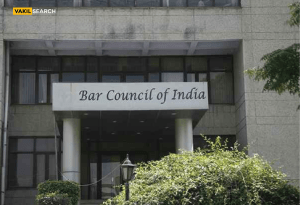BCI Raises Strong Objections
The Bar Council of India (BCI) has strongly opposed the Advocates Amendment Bill, 2025, citing serious threats to its autonomy. It argues that the bill weakens the legal profession’s ability to self-regulate. The draft bill, released for public consultation last week, has already sparked tensions between the BCI and the central government.
BCI Opposes Government-Nominated Members
A key concern is the proposal allowing the central government to nominate three members to the BCI. According to the Council, this provision was never discussed during previous consultations. It believes such interference will undermine its independent decision-making. If implemented, the move could shift power away from legal professionals and give the government greater control over regulatory matters.
BCI Rejects Transfer of Foreign Lawyers’ Regulation
Another major issue is the transfer of regulatory authority over foreign lawyers from the BCI to the central government. The Council argues that this contradicts the Supreme Court’s ruling in the AK Balaji case, which confirmed BCI’s role in governing foreign legal practitioners. In 2022, the BCI had already established detailed guidelines for foreign lawyers. Therefore, it insists that the responsibility should remain under its jurisdiction.

Government’s Power to Issue Directions
The draft bill also gives the central government the power to issue binding directions to the BCI. However, the Council believes this is an unacceptable provision. It warns that such authority would weaken the legal profession’s self-regulation and harm its independence. Legal bodies must remain free from excessive government control to function effectively.
BCI Raises Concerns Over Enrolment Fee Changes
The BCI is also opposing proposed changes to the enrolment fee structure. Under the current system, the BCI determines these fees. It had suggested a fixed enrolment fee of ₹18,000 for state bar councils and ₹3,000 for the BCI, with periodic adjustments based on inflation. However, the draft bill proposes handing this authority to the government. The Council fears this could lead to arbitrary fee changes, creating uncertainty for new advocates.
Legal Experts Call for Dialogue
Legal experts have weighed in on the issue. Senior corporate lawyer Hemant Batra, Vice President of Saarclaw, believes the disagreement could delay much-needed reforms. He suggests that both the government and the legal community must find common ground through discussions. Without consensus, the bill’s implementation could face significant hurdles.
What’s Next for Legal Reforms?
The BCI’s opposition has added new challenges to the government’s legal reform efforts. While the bill aims to modernize India’s legal industry, concerns over autonomy and regulation persist. Moving forward, further consultations will be crucial in shaping the final version of the Advocates Amendment Bill, 2025. The legal community now waits to see whether the government will address these concerns or push forward with its proposed changes.
Stay updated with the latest news and other trending updates! Visit Vakilsearch News for exclusive insights.
- Karnataka High Court Upholds Sales Tax on Set-Top Boxes - February 21, 2025
- BCI Opposes Advocates Amendment Bill 2025, Citing Threats - February 20, 2025
- Karnataka HC Denies Pension Revision for Pre-2006 Retirees - February 19, 2025

